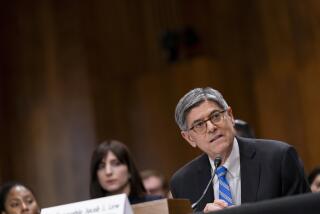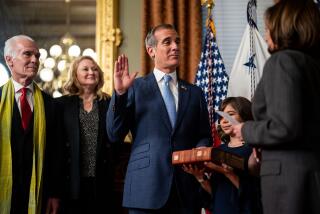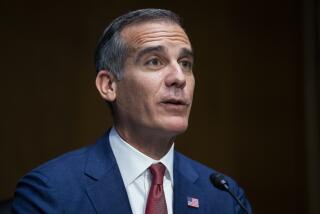U.S. Ends Delay, Accepts South African Ambassador
WASHINGTON â The Reagan Administration, ending a snub of the South African government, today accredited its ambassador-designate despite âtroubledâ relations, the State Department announced.
Department spokesman Charles Redman said Ambassador-designate Herbert Beukes presented copies of his credentials to Deputy Secretary of State John Whitehead.
Beukes must present his credentials to President Reagan in a traditional White House ceremony that will mark his official designation as ambassador. That ceremony has not been scheduled, Redman said, but Beukes will function as an ambassador in the meantime.
Beukes was designated ambassador in April, but the usually pro forma presentation of his credentials had been delayed by the Administration as a signal of displeasure with the white minority governmentâs racial policies.
During a period of strained relations between the two governments, U.S. Ambassador Herman Nickel was recalled from Pretoria for consultations. His return two weeks ago figured in the decision to fully accredit Beukes.
âThe decision to accept Mr. Beukesâ credentials at this time reflects our views that the gravity of the domestic situation in South Africa and continuing regional violence mandate that the United States utilize all possible channels of communication to convey to the South Africa government the need for immediate domestic reform and progress toward regional peace,â Redman read to reporters from a written statement.
âOur relations with South Africa remain troubled. Events in South Africa, increased violence in the region, including South Africaâs military involvement in Angola and violations of the Nkomati (agreement) are issues of deep concern and are at the center stage of our diplomacy in South Africa.â
The U.S.-backed 1981 Nkomati, agreed to by South Africa and neighboring states, was intended to bring peace to the South African region. The Administration has complained that South African cross-border raids into neighboring countries have threatened the accord.
More to Read
Sign up for Essential California
The most important California stories and recommendations in your inbox every morning.
You may occasionally receive promotional content from the Los Angeles Times.










